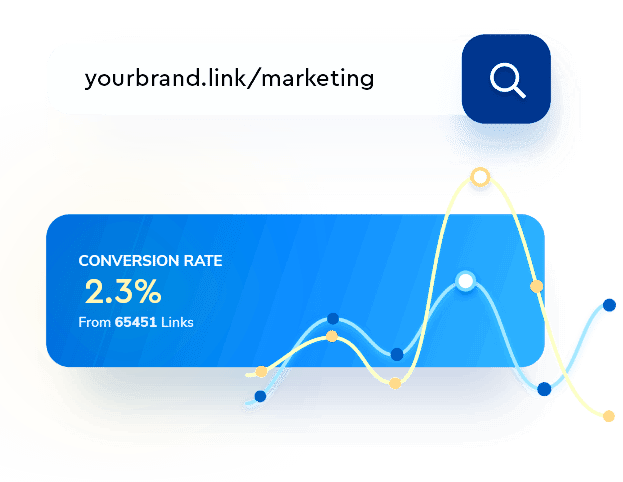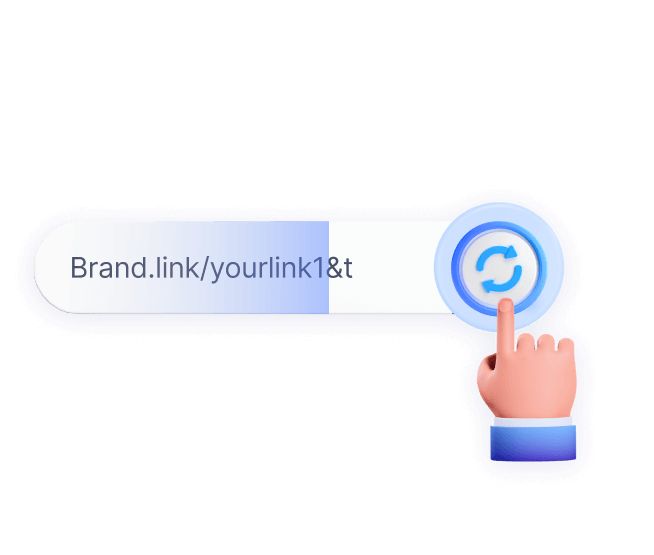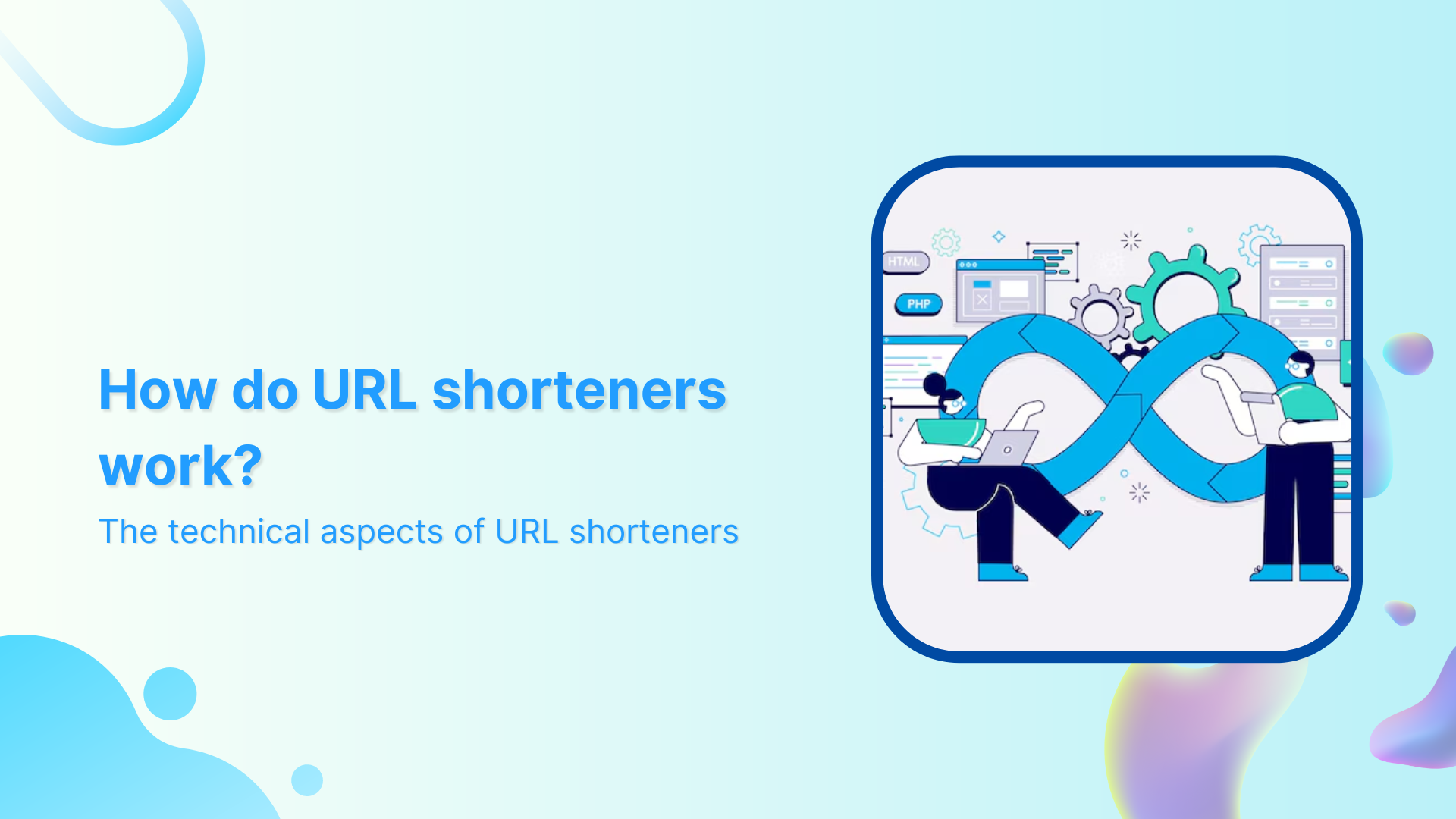It’s no surprise that marketers, influencers, and bloggers use all sorts of tools, software, and plugins that improve their content reach, engagement, and conversion.
One such essential tool is a URL shortener that trims down long URLs into small, sweet URLs. Undoubtedly, short URLs have quickly become a crucial part of the modern-day digital marketing ecosystem.
The purpose of a URL shortener is to shorten the URL to make it easier for the user to share, publish, and analyze. However, if you’re a tad curious about how URL shorteners work, then this piece is going to uncover some answers for you.
Before we discuss the technical aspects of a URL shortener, let’s briefly discuss its history. Then, we’ll move on to the implementation, challenges, and technological aspects.
History of URL shorteners
Short URLs have a rather interesting history. The concept of short URLs was created with a simple need to solve a personal problem.
In 2002, Kevin Gilbertson, an active participant in unicycling newsgroups, was frustrated with the long and unwieldy URLs that were difficult to share.
To make his life easier, he created TinyURL, the first known URL-shortening service. It’s interesting to find out that the concept of short URLs wasn’t the result of a well-organized effort in the grand scheme of things. All Gilbertson wanted to enhance his user experience by creating something that worked better for his specific needs.
The idea that started as a solution to solve a long URL-sharing problem turned into something bigger. The concept of shortening URLs soon expanded beyond individual users, capturing the attention of a broader online audience.
Gilbertson’s simple idea to solve a personal problem ultimately evolved into a key piece of internet infrastructure. URL shorteners are now indispensable for sharing content, tracking clicks, and analyzing user behavior, thanks to an entrepreneurial effort by a creative web developer seeking a more streamlined web experience.
The technology behind URL shortening
Before we dive deep into the technical aspects of URL shorteners, it’s important to understand the URL structure of a shortened URL. For instance, here’s a link

The first half of the short URL (replug.link) is the default short domain. Later, we’ll discuss how brands can use their custom, short domain with their URL shortener.

The next part in the short URL is the slug that works as a unique identifier and is known as a token.
Tokens are alphanumeric strings that identify long URLs. They can be 6 to 9 characters long.
Two aspects of URL shortening are worth knowing in order to understand how they work fully.
1. Short URL generation
It’s a process where a long URL is provided to the system, which then creates and returns a shortened version. If the system has already generated a short URL for that long URL in the past, the same one is returned. However, a new one is generated and provided if the existing short URL has expired.
2. URL redirection
This describes how the system responds when a user clicks on a short URL. The system first receives the request and then directs the user to the original, full-length URL associated with that short link.
Implementing URL shortening in web development
This is considered one of the most common yet practical technical aspects of URL shorteners. Implementing URL shortening in your well-built web application can enhance user experience, improve click-through rates, and provide valuable analytics.
Here are a few steps on how to integrate URL shortening into your web development projects.
Choosing the right API: Consider factors like features, pricing, and ease of integration when selecting a URL-shortening API for your project.
Setting up the development environment: Once you’ve chosen your API, make sure you have the necessary tools and libraries installed. Most APIs will require you to sign up for an API key as one of the common authentication methods.
Integrating the API: Implement the API by following its documentation to connect your application, allowing users to shorten URLs seamlessly. The effectiveness of these integrations heavily depends on proper API design that ensures reliability and scalability.
Handling redirects: When a user clicks on a shortened link, it should redirect them to the original URL.
Analytics and tracking: One of the primary advantages of URL shortening is tracking links. Use the analytics features provided by your chosen API to monitor clicks, geographical data, and referral sources.
Testing and deployment: Before going live, thoroughly test your URL shortening feature. Ensure that:
- Shortened links redirect correctly.
- Analytics are being tracked accurately.
- The user interface is intuitive and responsive.
Once you’re satisfied with the performance, deploy your application to a production environment.
By following the steps outlined above, you can implement this feature effectively and leverage it to improve your digital marketing efforts.
Top 4 APIs for URL shortening
URL shorteners have quickly become an inevitable resource for creating, managing, and analyzing digital marketing campaigns.
SAAS developers and marketing tools utilize URL shortener APIs (Application Programming Interfaces) to flawlessly add link-shortening capabilities into their tools and software.
Here are the most popular APIs for URL shorteners:
1. Replug
Replug is a powerful URL shortener API that not only allows you to create short links but also provides advanced features for managing and analyzing those links.
Branded Short Links
Create and track branded short links for your business for better conversions.
Brand Your Links Now!
With Replug, developers can easily integrate link-shortening capabilities into their applications, making it a popular choice for digital marketers, agencies, and SaaS developers alike.
2. Shorten.rest
Shorten.rest is a URL shortener API developed by API LADS. It’s available on RapidAPI for developers and SAAS companies to create customized URL-shortening tools.
3. Bitly
Bitly is a well-known URL shortening service. It also has a URL shortener API for developers and agencies wanting to create branded URL shorteners.
4. Yourls
Yourls is an open-source tool for setting up a URL-shortening tool. It needs to be installed on the server and usually requires a software engineer to install and run.
These are some of the URL shortener APIs to watch when developing a URL shortener tool or integrating a link shortening service into an existing social media management tool.
Other ways brands implement URL shortening
Some of the other common and effective technical aspects of URL shorteners.
1. Short URL integration in social media scheduling tools
Integrating social media scheduling tools that automatically shorten links when scheduling or publishing posts. It allows users to make their URLs more concise, shorter, and trackable.
2. Blog post short links for sharing
Some blog owners want to ensure that their readers can easily share their blog posts on social media. Undoubtedly, short links for blog posts make content sharing across different platforms easier and faster. These links are typically created either manually or through automation when a blog post is published.
3. Custom short URLs in affiliate dashboards
Affiliate networks provide affiliate marketers with multiple dashboard features to generate affiliate links, promote products, and track conversions effectively. One feature of the affiliate dashboard is the ability to shorten affiliate product links.
4. WordPress plugins for affiliate product links
WordPress plugins can automatically generate short, user-friendly URLs for product links. These plugins allow you to manage multiple affiliate links from a central point in the dashboard.
Also Read: How to Redirect a URL in WordPress – Ultimate Guide
6 challenges with URL shortener reliability
URL shortening is an advanced link management technique adopted by top brands, influencers, and marketers worldwide. However, some hiccups when using short URLs at scale are worth knowing.
Let’s crack this open and find out more about the challenges users might face with URL shortener reliability:
1. Potential loss of user trust
A major challenge of using URL shorteners is the risk of diminishing trust. Since shortened URLs hide the actual destination, users may be hesitant to click on them, particularly if they’ve experienced scams, phishing, or another malicious phishing incident before.
Verifying both the origin and the destination of shortened links is essential to avoid potential security breaches. It’s also recommended to click on the short URLs from trusted sources only.
Also Read: How to use shortened URLs for marketing : 13 smart ways to leverage short URLs
2. SEO impact of URL shortening
SEO experts haven’t been huge fans of URL shorteners, especially when pursuing search engine optimization (SEO) campaigns for their brand or a client. It’s a popular opinion that URL shorteners can negatively impact SEO.
By using a shortened link, the original domain’s SEO value may not transfer, which could result in missed opportunities for improving visibility on search engines.
Link Management Made Easy
Your go to link management tool for CTAs, branded and bio links, QR Codes, tracking and retargeting.
Get Started for FREE!
3. Fewer link previews on social media
There are some social media platforms where users get frustrated to see that link previews aren’t showing up properly, making it difficult for users to assess whether the link is reliable or relevant before clicking.
As a result, it leads to a need for more transparency, reducing user engagement and clickability on social media content.
4. Decreased user experience due to redirects
The URL redirect mechanism is inherent in URL shorteners, and it can slow down page loading times, especially if multiple redirects are involved, or the web server quality is poor.
This delay can lead to frustration, negatively impact user engagement, and potentially drive users away from the website. Therefore, URL redirection could challenge the URL shortener’s reliability.
5. Reduced analytics and tracking for marketers
It’s quite evident that social media success is associated with audience engagement, interaction, and retention. However, URL shorteners can sometimes limit the ability to track link performance accurately.
In some cases, the shortened URLs can make it harder to gather data, hindering the ability to measure a social media marketing campaign’s success and effectively create future marketing strategies.
Also Read: Conversion tracking: Best tools, tips, and tricks
6. Data collection and privacy concerns
It’s always recommended to use high-quality, well-reputed URL shortening services. While most URL shorteners clearly state their policies regarding users’ privacy, some services may collect data from user clicks, including sensitive information like IP addresses and geographic locations, without users’ consent.
It’s also true that some URL shorteners offer privacy-focused features that distinguish them from the rest. The priority should be choosing link management platforms with transparent and clear policies on how user data is collected, stored, and used.
These are some of the challenges with URL shortener reliability that users must be aware of when opting for a URL shortening tool.
Best URL shortener in 2025
As we look into 2025, several URL shorteners stand out for their features, ease of use, and reliability. Here we will reveal the best URL shortener of 2025.
Meet Replug
Replug is gaining traction as a powerful URL shortener that combines link shortening with comprehensive link management and engagement features.
Shorten your links, amplify your brand.
Create shareable, trackable and fully customizable branded urls. Get more clicks with absolute link management features such as Bio Links, retargeting, deep Links, CTA’s and more.
Learn More!
Here are some reasons to consider Replug:
- Customization: Replug provides robust customization options. You can use your custom domain to create branded short links that match your brand’s identity. This adds a professional touch to your links and enhances brand recognition.
- Powerful Analytics: Replug offers in-depth analytics to track the performance of your short links. You can monitor the number of clicks, geographic locations of users, referral sources, and more. This data is valuable for optimizing your marketing strategies.

- UTM Parameters: Replug allows you to add UTM parameters to your short links, helping you track and analyze the effectiveness of different marketing campaigns.
- QR Codes: You can generate QR codes for your short links with Replug. QR codes make it easy for offline audiences to access your online content by simply scanning the code.
- Link Management: Replug provides a user-friendly dashboard for managing all your short links in one place. It’s easy to organize and categorize your links for efficient use.
- Team Collaboration: If you work with a team, Replug offers team collaboration features, allowing multiple users to manage and track links collectively.
- Privacy and Security: Replug takes privacy and security seriously, ensuring that your data and links are protected.
The platform also offers pricing plans suitable for different needs, from individuals to businesses, making it accessible to a wide range of users.
Quick fixes for URL shortener security issues
Alonsgide the technical aspects of URL shorteners, Let’s take a look at some of the tips to improve URL shortener security concerns:
1. Reveal the full URL before clicking
Many URL shorteners offer preview features that allow users to view the original URL before clicking the shortened link, promoting trust and transparency.
Additionally, some services enable custom short links that include recognizable brand elements, enhancing user confidence.
Users can also utilize browser extensions that reveal the original URL by hovering over or clicking on a shortened link, further ensuring security. Advanced URL shorteners may display a tooltip with the full URL upon hovering, providing a user-friendly way to keep users informed.
2. Utilize a URL checker
URL checkers are yet another way to check the short URLs before accessing the link. It allows users to be 100% sure about the destination URL isn’t a scam or contains any malicious code. There are online tools or websites that let users check the short links, such as getlinkinfo.com and unshorten.it.
Also read: How to shorten a link?
3. Make your short URL more descriptive
One of the quick fixes for URL shorteners or short URLs could be creating more descriptive link text. It’s only possible if the URL shortener allows users to create a custom slug for the short URL.
Shorten your links, amplify your brand.
Create shareable, trackable and fully customizable branded urls. Get more clicks with absolute link management features such as Bio Links, retargeting, deep Links, CTA’s and more.
Learn More!
4. Enable browser security features
Modern browsers come equipped with built-in security features to help protect against online threats. Keep these features, such as phishing protection and unsafe site warnings, activated and updated regularly to shield yourself from malicious links and websites.
5. Be alert to suspicious shortened URLs
While shortened URLs themselves aren’t inherently dangerous, cybercriminals can use them for malicious purposes. Be cautious if a shortened link comes with promises of deals, prizes, or requests for personal information, as these could be signs of phishing or fraud. Always research the link thoroughly before engaging.
6. Strengthen protection with antivirus software
In addition to your browser’s security tools, use strong antivirus software to safeguard against potential threats from shortened links or harmful websites. Keep your antivirus up to date to ensure it can detect the latest vulnerabilities and provide maximum protection.
7. Create your own shortened URLs
Whenever possible, generate your own shortened links rather than relying on those from unknown sources. Many free URL shortening services allow you to create customized URLs while maintaining control over privacy and minimizing the risk of third-party manipulation.
Also Read: How to Rename Links Using Replug: 5 Simple Steps
8. Check the legitimacy of shortened links
Before clicking on any shortened URL, especially those received via messaging apps or emails, take a moment to verify its trustworthiness.
Consider the source—do you trust the person or platform sharing it? Hover over the link to ensure it aligns with the suggested destination, and if you’re unsure, investigate further or confirm with the sender.
So, these are some of the quick fixes for URL shortening security issues.
Regulation and legal issues surrounding URL shortening
Disclaimer: Be advised that this isn’t legal advice, so it shouldn’t taken as an expert opinion. Consult your lawyer or legal team for accurate information.
URL shorteners convert long URLs into short, compact versions. These short URLs are generally legal and widely used by individuals and companies around the globe. However, there are legal concerns surrounding their use, primarily related to cybersecurity, intellectual property, and data privacy.
Since these services can obscure the destination URL, they may be exploited for phishing attacks, malware distribution, or illegal content sharing, raising concerns among regulators.
Some affiliate programs don’t allow affiliate marketers to use any URL shortener to trim down the long, clunky affiliate product link whatsoever.
Amazon Associates is the prime example of that; it’s against their terms and conditions to shorten the affiliate links.
From a legal standpoint, URL shorteners must comply with privacy laws like GDPR in the European Union and CCPA in California, particularly when they collect user data.
The shortened links often track user behavior, so services handling personal data must ensure transparency and secure handling. Non-compliance can result in heavy fines.
Emerging technologies in URL shortening
Unsurprisingly, URL shortening has evolved significantly over the past few years. Moreover, URL shortening isn’t just about shortening a long and cumbersome URL. New technical aspects of URL shorteners have taken the marketing world by storm.
Let’s roll up our sleeves and take a look at some of the key emerging technologies in the URL shortening space:
1. Branded short links
Several URL shortening services now offer the ability to create branded short links using your domain name. It allows marketers and bloggers to create short, custom URLs that instantly remind the audience of the brand.
It is an emerging technology worth mentioning in the URL-shortening arena. Branded short links can improve click-through rates and build trust with users.
2. Dynamic link rotation
Some URL shortening platforms use intelligent link rotation to analyze user experience and response.
It allows users to utilize a single link to direct the audience to the various landing pages, depending on factors like country, date, time, etc. As a result, the link management tool analyzes the performance and determines the best destination URL.
3. Link retargeting
Link retargeting allows marketers and influencers to show targeted ads to users who click on the short links.
When a user clicks a retargeted short link, they are redirected to the destination URL while a cookie is placed on their device – the retargeting pixel.
The job of a retargeting pixel is to help identify the user when a retargeting campaign is launched.
Link Management Made Easy
Your go to link management tool for CTAs, branded and bio links, QR Codes, tracking and retargeting.
Get Started for FREE!
4. Shortened URLs with QR codes
Thanks to innovative marketing techniques and emerging technologies, offline marketing has risen despite the attention shift toward online platforms.
Now, marketers can easily connect shortened URLs with QR codes to set up a powerful tool for offline marketing.
Replug allows users to generate a QR code that points to a short URL, enabling social media followers and potential customers to access content from print ads, newspapers, posters, or business cards.
FAQs about URL shortening
Let’s take a look:
How do you shorten a URL?
Pick a URL shortening tool like Replug; copy and paste the URL, and hit the button. The URL shortener will generate a short URL for the long, clunky URL.
What algorithm to shorten URLs?
URL shorteners are built with different programming languages and APIs that empower these tools to effectively shorten long, funky URLs within a second.
Which URL shortener is popular?
Replug, Bitly, TinyURL, and several others are quite popular URL shorteners on the market. However, there are a bunch of free and paid link management tools that offer URL-shortening services.
Do URL shorteners affect SEO?
URL shorteners could negatively affect SEO if they are aggressively used in content marketing and SEO campaigns. We discussed why and how URL shorteners could be bad for SEO earlier in the article.
Does Google prefer short URLs?
Google or any other search engine would prefer clean, simple, and accessible URLs whether they are short or long URLs. However, if long URLs are clunky and spammy, then it might not help a website in getting ranked higher in the SERP.

































